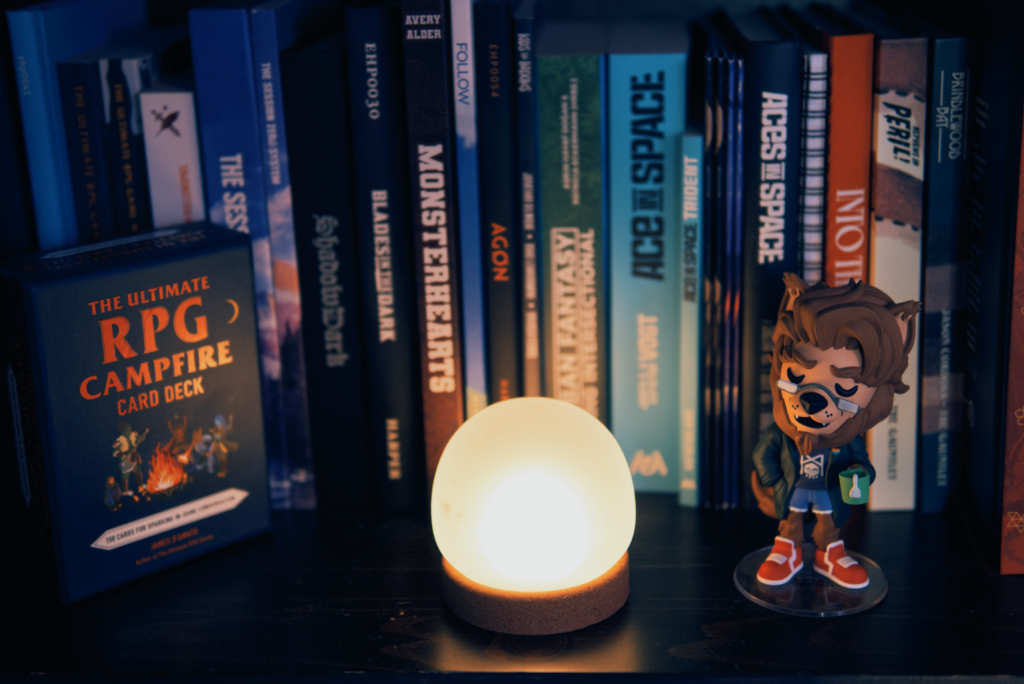
A while back in one of his June episodes Mike Shea aka. Sly Flourish asked and tried to answer the question whether Actual Play shows were building false expectations, when it came to home gaming (found here). I am well aware that this 💿🐎 is as old as Actual Play itself, but I found it still interesting enough to engange and collect some thoughts:
As a GM
- I have an expectation about how well I run my games
- I want my players (and myself) to enjoy my games
As a Player
- I have an expectation about my game experience
- I enjoy games using props, maps, voices, elaborate roleplay etc. (a certain element of entertainment value basically.)
So the whole thing boils down to expectation management, right?
In his podcast Mike is trying tro answer the question by looking at data:
Are GMs having problems to find players?
According to the data presented they are not, but that metric’s dangerous in my opinion, because we all know GMs are like pizza: Even a bad GM is better than no GM, and if you have a look at the kink community and the amount of bad or unsafe tops (almost always men, of course) that still seem to find play partners, you’ll agree that supply and demand might not be the best metric in this case.
Based on the data presented players in organized play are very satisfied with their experience
I think organized play is a very specific niche of the hobby, and I assume people going into organized play go into it with very specific expectations. So its rigid format allows GMs and palyers to manage their expectations going into it.
Sure, but what does that mean for our home games and what do our players say?
The answer’s simple and often overlooked: Ask them! Talk to your players and inquire what they want and what they’re missing…Manage expectations in a Session Zero, find out what they liked and didn’t by employing Retrospective techniques like Stars and Wishes or just simply send them a text after the gaming session and check in with them. Also, as a GM, keep in mind to ask yourself the question what you liked and didn’t like!
And the Matt Mercer effect?
I will, again, deploy a kink comparison (so much overlap… weird, huh?), but we often encounter problems when players don’t know what they want or when they only know one type or facet of play. So, the Matt Mercer effect, if it in fact exists, might be most prevalent in new players, who want that experience without fully understanding the amount of effort, training and budget it requires by both the GM and the other players at the table to provide it.
As a home game GM, I am not just my players‘ service top and they are not merely consumers of my meticoulously curated game experience (and neither are the other player’s in an Actual Play performance, so up to a certain extent the „consumer“ analogy is confusing the audience with the cast).
To mitigate misunderstanding and dissapointment, negotiation and expectation management are again key: „Here’s what I have to offer, do you think you’ll have a good time with that?“
You’ve talked a lot saying very little, what’s your point here?
Of course Actual Plays affect us… we watch their shows, buy their merch and steals their dirty little tricks. We borrow their tropes like we would from any cool TV show or movie. In the end, the hobby is as much about stealing as it is about being creative! But here’s what matters at your home game table:
Find players that match and enjoy your play style and your flavour of game.
For you as a GM that might mean that first, you have to find your play style and your flavour of game.
And of course, like so many things in life and play, your preferred style and flavour might be a broad spectrum of settings: Sometimes you’ll be in the mood for a grimdark, gritty fantasy world where one mistep means certain death, while on other days, you’d prefer a lighthearted, wholesome setting where monsters can be coaxed or persuaded by cake and everything’s better with frosting!
It’s okay to switch, just remember to keep the communication channels open, check in with each other and make sure everyone’s enjoying themselves!

